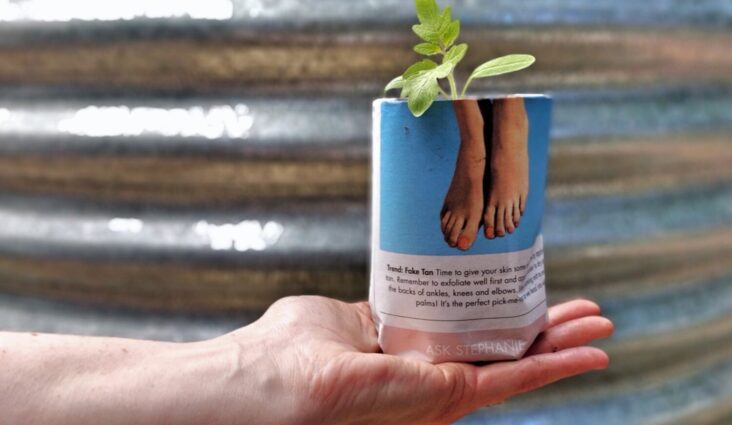So many people consider gardening as a pastime thing, a way to connect with nature, and a source of fresh, wholesome produce. However, the image that often comes to mind is that of sprawling gardens in spacious backyards, or perhaps neatly tended rows of vegetables stretching out across fertile fields. But what if your living space is limited to a cozy apartment, a modest balcony, or a compact urban garden?
Is it possible to practice zero-waste gardening in such a limited space? The answer is a resounding “Yes!” The allure of practicing zero waste gardening lies in its sustainability and the harmonious relationship it fosters between humans and the environment. It’s about more than just cultivating plants; it’s a commitment to reducing waste, conserving resources, and nurturing a greener, more eco-conscious way of life. I
In this exploration, we embark on a journey to discover the possibilities and creative solutions that enable anyone, regardless of space constraints, to engage in the transformative world of zero-waste gardening.
The Beauty of Small-Space Gardening
Before we dive into the world of zero-waste gardening in small spaces, let’s talk about why it’s worth it. Small-space gardening has its unique charm. It allows you to connect with nature, grow your own food, and contribute to a greener environment, all without needing acres of land.
Choose the Right Plants
The first step to practicing zero waste gardening in a small space is selecting the right plants. Opt for varieties that thrive in containers and don’t need a lot of room to spread out. Herbs like basil, mint, and thyme, or compact vegetables such as cherry tomatoes, peppers, and lettuce, are excellent choices.
Container Gardening
Containers are your best friends when space is limited. You can use pots, and planters, or even repurpose old containers like buckets or wooden crates. Just make sure your containers have drainage holes to prevent overwatering.
Soil and Composting
Invest in quality potting soil to provide your plants with the nutrients they need. To reduce waste further, consider composting your kitchen scraps. You can use a small compost bin or even try worm composting if space allows.
Water Wisely
Water conservation is a crucial aspect of zero waste gardening. Use a watering can or a drip irrigation system to avoid water wastage. Collect rainwater in barrels to provide a free and eco-friendly water source for your plants.
Avoid Synthetic Chemicals
Zero waste gardening also means avoiding synthetic pesticides and fertilizers that come in disposable plastic bottles. Instead, opt for natural solutions like neem oil or homemade compost tea to keep your plants healthy.
Upcycled and Repurposed Planters
Get creative with your containers. Upcycling items like old shoes, tea tins, or wooden pallets can add character to your small-space garden while reducing waste.
Vertical Gardening
When horizontal space is scarce, think vertically! Vertical gardening using wall-mounted planters, trellises, or hanging baskets can make the most of your available space.
Seed Saving
Embrace the cycle of life by saving seeds from your plants. This not only reduces waste but also allows you to replant and share seeds with fellow gardeners.
Community and Sharing
Consider joining or creating a gardening community in your neighborhood. Sharing resources, seeds, and knowledge can help you reduce waste collectively while fostering a sense of camaraderie.
In conclusion, practicing zero waste gardening in small spaces is not only possible but also incredibly rewarding. It allows you to connect with nature, reduce waste, and enjoy the fresh produce and beauty of your mini oasis. So, whether you have a balcony, a tiny patio, or a small urban garden, you can be a steward of the Earth and grow green, even in the smallest of spaces. Happy gardening!


